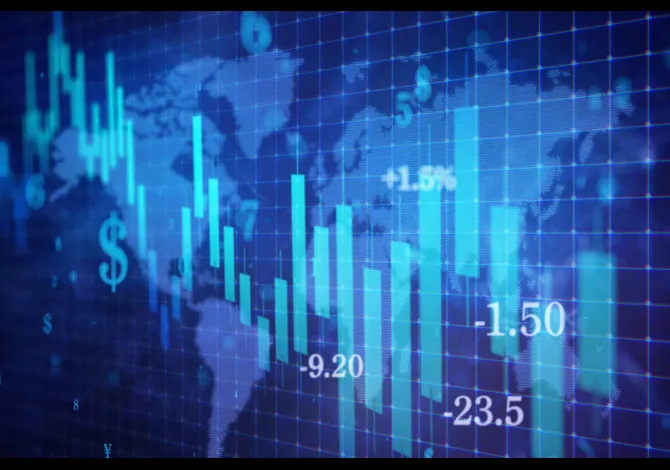In 2024, an increasingly volatile world will define the state of the global economy
In 2024, an increasingly VUCA (volatility, uncertainty, complexity and ambiguity) world will see four big issues and six trillion-dollar GDP rankings define the state of the global economy. It will not be pleasant; it will not be smooth; it will not be peaceful. Economic survival will need greater perseverance, economic governance will need creative policies, and the political economy will need to adjust to and work around this new abnormality.
First, as in 2023, security will remain the key driver of the economy in 2024. The uncertainty that began with the Russia-Ukraine war in 2022 and overflowed into the Israel-Hamas conflict in 2023 will continue through 2024. If talks succeed in Ukraine, the geography of violence will shift to West Asia and fire the overall economic uncertainty; if talks fail, volatility will get amplified. As a result, commodity prices, particularly of oil will remain volatile, i.e., if peace remains evasive, fuel prices will rise till a point; when it results in inflation and slowdown, they will fall. Both, oil-producing and oil-consuming economies will be on tenterhooks. Price uncertainties around food and fertilisers will continue. Traders will gain, households will lose, and the governments will be hard-pressed to balance growth and prices. This will in turn impact domestic politics. How the easing of sanctions against Venezuela by the United States, and the resultant increase in global oil and gas supply will play out remains to be seen.
Second, the uncertainty in oil, food, and fertilisers will influence other commodities and influence inflation across the world. In some countries, such as Türkiyé (86 percent), Iran (40 percent) and Pakistan (29 percent), prices will remain out of control through 2024, as the economic base has been smothered by power dominance and ideological considerations. Venezuela (318 percent) may come out of its inflationary spiral. Countries that faced the gas shock squarely following the Russia-Ukraine war in 2022, all in Europe, have reached a new normal and inflation is easing there on a higher price base. Overall, the inflationary uncertainty will continue through 2024, though much depends on how the Israel-Hamas conflict plays out for oil-exporting countries.
Third, interest rates across the world will rise and fall alongside inflation, particularly the related oil price volatility. Further, with the US keeping its policy rates high at (5.5 percent now, compared to less than 1 percent in March 2022), other countries will be under pressure to match, such as India, where the policy rate stands at 6.5 percent. But there are worse tidings for high-inflation economies. Interest rates have jumped to 30 percent in Türkiyé, 22 percent in Pakistan, and 18 percent in Iran. Unless war-driven global inflation rates fall steadily, which given the security uncertainty is unlikely, 2024 should see stronger action from the world’s central banks to maintain or even increase interest rates to contain inflation. The uncertainty of inflation will impact the volatility of interest rates.
This will put pressure on the ability of businesses, particularly small- and medium-sized enterprises, to borrow. Big loans will flow towards large corporations as banks become risk averse, and seek scale, the ability to pay back, and the collateral to support the borrowing. As small businesses shut down, or get bought over, related political issues such as unemployment could raise their heads in high-inflation, high-cost economies. Democracies will begin to shun bad politics and embrace good economics; authoritarian regimes will press harder to create new enemies and increase the economic hardships of their citizens. Many countries will see a market-led depreciation, or even a policy-driven devaluation, of their currencies. Thus, 2024 could see a slowdown or even a recession in some economies.
Finally, conversations around de-risking from China that had slipped into the background in the past two years will be back in 2024. This time, the discussion will broaden to include the arc of China that encompasses North Korea, Russia, Pakistan, and Iran. As they face a slowdown and even recession, countries of the European Union (EU) will continue to play “yes, but” with China. And despite Indian and Chinese soldiers standing eye-to-eye on the border, the unsustainable India-China trade will continue to favour China, unless stopped by economic security policies. Led by a real estate crisis, a slowdown in China is visible and happening; its 2024 real growth is projected at 4.2 percent and inflation at 0.2 percent. Adjusted for inflation and in nominal terms, a 4.4-percent increase in a US$18-trillion economy will add almost US$800 billion, about 56 percent of what the US will likely add on a US$27-trillion economy growing at 1.5 percent with 3.7-percent inflation. The implosion of the Chinese economy will not happen in 2024—slowdown yes, breakdown no.
These four components will impact global economic growth in 2024. In particular, it will change 6 trillion-dollar GDP rankings. A sharp depreciation in the value of the yen—down 18 percent in 2023, and 45 percent since January 2021—will see Germany cross Japan to become the world’s third-largest economy in 2024. According to the International Monetary Fund, Japan’s GDP, which was US$6.3 trillion in 2012 is expected to end 2023 at US$4.2 trillion, compared to Germany’s US$4.4 trillion. India will cross both by 2025. The other big changes in rankings in 2024 will be South Korea (US$1.71 trillion) overtaking Australia (US$1.69 trillion) for the 12th spot, and the Netherlands (US$1.09 trillion) crossing Saudi Arabia (US$1.07 trillion) for the 17th spot. Indonesia which is expected to grow by 5 percent in 2023 and 2024, will have to wait till 2025 to overtake Spain and reach the 15th spot.
The interdependence of commodities, companies, and countries combined with the interplay of security, sanctions, and supply chains became a complex game in 2023. The threat of a new Cold War, the creation of new axes of collaboration, and the obliteration of peace as either a means or an end over the past two years have impacted every citizen across the world adversely. Whether we return to the security volatility during the World War I and II years or find leaders who can embrace new ideas and thereby enable the transition into an emerging multipolar world, and through them bring new peace, however fragile it may be, is a factor that will impact the global economy in 2024 and beyond. Until then, embracing VUCA will be the only constant and the sole paradigm within which to work for the next 12 months.
______________________________________________________________________________________________________________________________
This essay is part of the “What to expect in 2024” series.
Gautam Chikermane is a Vice President at the Observer Research Foundation











